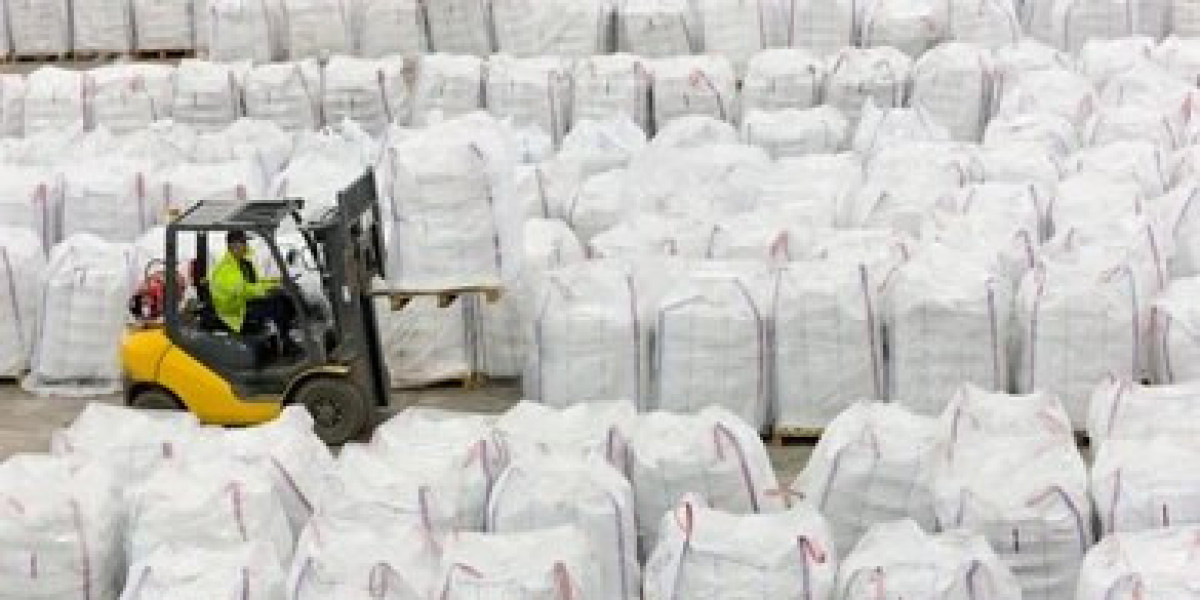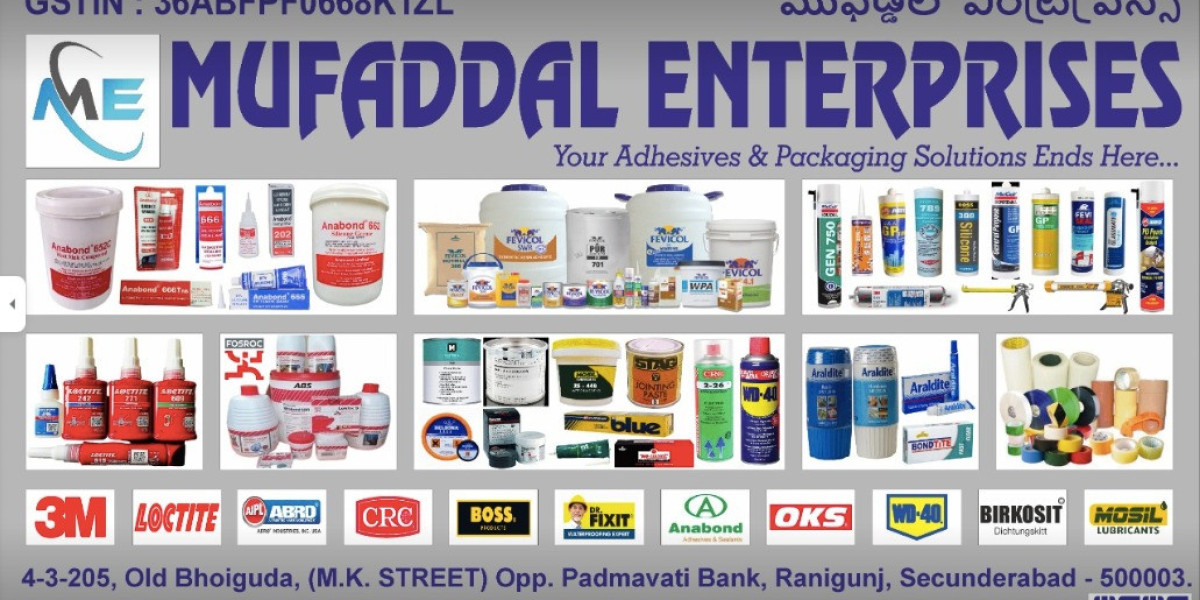In industrial operations, packaging is more than just a means to contain products—it’s a key part of logistics, cost-efficiency, and product safety. Among various packaging options, bulk bags, also known as FIBCs (Flexible Intermediate Bulk Containers), have emerged as a smart and scalable solution for B2B businesses across sectors. These bags, typically made from woven polypropylene fabric, are designed to store and transport dry, flowable goods in large quantities—ranging from 500 kg to 2000 kg or more.
Whether you're in the agriculture, construction, chemical, or food processing industry, bulk bags offer the kind of flexibility, strength, and economy that traditional packaging materials simply can't match. This blog explores everything B2B buyers need to know about bulk bags: their features, advantages, industry applications, and tips for choosing the right supplier—including a spotlight on woven polypropylene fabric suppliers UK.
What Are Bulk Bags?
Bulk bags are large, flexible containers made from woven polypropylene, used to store and transport bulk materials. Depending on your needs, these bags can be custom-designed in terms of size, shape, inlet/outlet spouts, and lifting options. Commonly available in standard 1-ton sizes, they are also highly customizable and used extensively for dry products such as grains, powders, plastics, cement, fertilizers, and more.
Types of Bulk Bags
U-Panel Bags – Three-piece construction, ideal for stacking.
Circular Bags – Made from a seamless tube of fabric, great for finer materials.
Baffle Bags – Reinforced sides for shape retention and better stacking.
Conductive (Type C) and Dissipative (Type D) Bags – Designed for flammable environments.
Why Bulk Bags Are Ideal for B2B Use
1. Cost-Effective for Large Quantities
One of the biggest advantages of bulk bags is their ability to handle massive loads. A single bulk bag can carry what would otherwise require dozens of smaller sacks, significantly reducing packaging and labour costs.
2. Space Saving & Stackable
Bulk bags are collapsible when not in use and can be stacked neatly when filled. This reduces warehouse clutter and maximizes available storage space.
3. Eco-Friendly and Reusable
Made from recyclable polypropylene material, bulk bags can be reused multiple times depending on the application, contributing to sustainable packaging efforts—a growing priority in many B2B supply chains.
4. Customizable for Industry Needs
From spout tops and discharge bottoms to duffle tops and liners, bulk bags can be custom-made to suit your material handling requirements. You can even opt for food-grade or anti-static variants depending on the industry.
Industries That Benefit from Bulk Bags
Agriculture: Bulk bags are extensively used for transporting grains, seeds, animal feed, and fertilizers. Their durable design makes them perfect for field use and long-haul transportation.
Construction: Builders and contractors use bulk bags for sand, cement, gravel, and aggregates. The sturdy woven polypropylene construction helps the bags withstand rough handling on sites.
Chemical Industry: Chemical powders and granules need packaging that prevents contamination and offers moisture resistance. Bulk bags with inner liners or special coatings are commonly used here.
Mining: Ores, coal, and minerals are heavy and abrasive. Bulk bags can be engineered to handle high tensile loads, making them reliable for transporting mined materials.
Food Processing: With food-grade liners, bulk bags are used for transporting flour, sugar, salt, and other dry food items in large quantities—especially in B2B supply chains.
What to Look for in Bulk Bag Suppliers
When sourcing bulk bags for industrial use, choosing a reliable supplier is key. The right supplier will ensure that the bags meet regulatory standards, maintain consistent quality, and are delivered on time.
Here’s what B2B buyers should consider:
Quality of Woven Polypropylene Fabric
The strength and durability of bulk bags depend heavily on the quality of the polypropylene fabric used. Opt for woven polypropylene fabric suppliers UK that follow strict quality assurance processes and meet global compliance standards.
Customization Options
Suppliers should offer flexible design solutions—from size and weight capacity to UV protection and anti-static features. Look for vendors who can tailor bags to your exact application needs.
Certifications
Ensure that the supplier provides FIBCs certified by international bodies such as EFIBCA or ISO. Certifications guarantee performance, safety, and material quality.
Production & Delivery Capacity
Your supplier should have the capacity to handle bulk orders and provide consistent delivery schedules, particularly if you operate in a time-sensitive supply chain.
After-Sales Support
Post-purchase support, including testing, documentation, and handling guidance, is essential—especially when bags are reused or repurposed.
Why UK Businesses Prefer Local Woven Polypropylene Fabric Suppliers
For UK-based businesses, working with woven polypropylene fabric suppliers UK offers several advantages:
Faster Turnaround Times: Reduced shipping lead times compared to overseas sourcing.
Better Communication: Direct collaboration makes customization and coordination easier.
Compliance Assurance: Local suppliers are more likely to meet UK and EU compliance regulations, especially in sectors like food, construction, and chemicals.
Stronger Business Relationships: Easier access for audits, quality checks, and face-to-face negotiations.
Maintenance & Handling Tips for Bulk Bags
Use Forklift Loops Properly: Always lift bulk bags from designated lifting loops to prevent tearing.
Avoid Overloading: Never exceed the specified SWL (Safe Working Load).
Store Indoors or Use UV-Protected Bags: UV rays can degrade fabric over time; store bags in covered or shaded areas.
Inspect Before Reuse: If bags are reusable, inspect them for wear, tears, or seam damage before loading.
Other Types of Industrial Bags (Quick Glance)
While bulk bags are excellent for heavy-duty transport, some businesses may also use:
PP Woven Bags: Smaller than bulk bags, ideal for 25-50 kg loads. Common in agriculture and retail packaging.
BOPP Bags: Perfect for products needing attractive packaging with high-quality printing—used in food, pet feed, and fertilizers.
Block Bottom Bags: Known for their brick-like shape and stackability, often used for cement and building materials.
Bulk bags offer a powerful blend of strength, flexibility, and cost-effectiveness that make them a staple for B2B businesses across industries. Their adaptability for different materials and environments makes them a go-to solution for modern supply chains. For UK businesses, partnering with reputed woven polypropylene fabric suppliers UK ensures product integrity, customization ease, and compliance with local standards.
If you're looking to streamline your industrial packaging processes, reduce operational costs, and boost efficiency, investing in high-quality bulk bags is a decision that delivers both immediate and long-term value.







